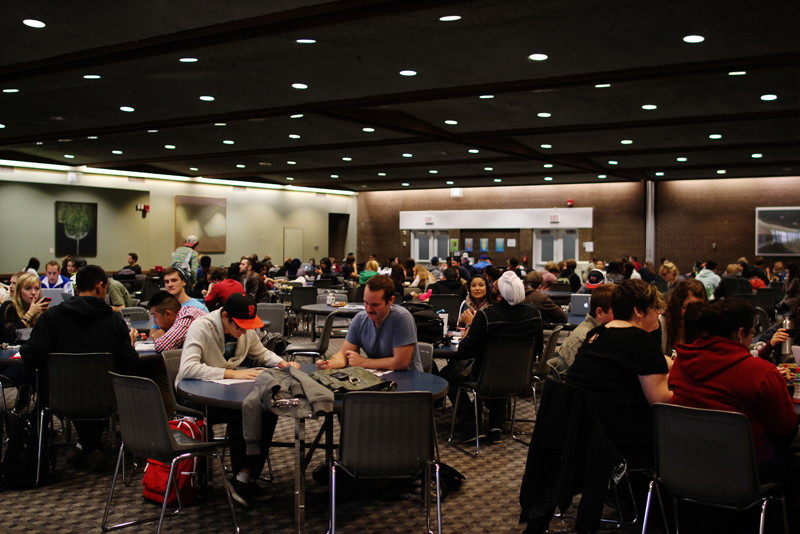Increased enrollment sparks debate over the point of academia
As enrollment at U of W continues to grow, faculty members question whether an academic education will live up to student expec
University enrollment is steadily growing, but faculty members wonder whether students actually know why they attend university.
According to a press release, enrollment in undergraduate programs at the University of Winnipeg has seen a modest growth of less than one per cent this year, while enrollment to graduate studies programs increased nearly 12 per cent over last year’s numbers, with domestic and international graduate students alike flocking to the university.
First year students identifying as aboriginal has increased to over 12 per cent, making the university one of the top destinations for aboriginal students.
With studies showing the U of W still has one of the smallest space-per-student ratios in the province, even a modest growth can leave the university bursting at the seams.
Neil Besner, the university’s vice-president research and international, maintains that increases to graduate programs will have no ill effect on the ability to accommodate undergraduate students.
Enrollment in spring and summer programs has also increased by 10.7 per cent, meeting the university’s goal to have education more evenly distributed over the year.
“When people are taking courses in the spring, they’re using our resources better,” said Besner.
However, politics professor Allen Mills notes such dramatic increases in enrollment can negatively impact the quality of programming the university offers, especially in light of provincial funding disparities the university has grappled with for decades.
Funding of post-secondary institutions in Manitoba does not take into account increases in enrollments to the university.
While the university’s enrollment has increased by 55 per cent in the last 10 years, its grant funding has risen by a much more modest rate.
“There’s a sense in which enrollment increases are driven partially by the university’s need for money,” said Mills.
As its financial need continues to grow, the university relies more heavily on student fees to pay its bills, Mills explained.
In order to gain students, the university has begun to shift its identity from one of academic knowledge to one of specific skill sets, such as those gained from a business or education degree.
“There is a view now that university is for turning out people with very practical skills, but then the question is, wouldn’t a community college be better suited to that end?” said Mills.
As students flock to these programs, it becomes more difficult to know how to prioritize knowledge sets for students, and quality and direction of programs suffers, said Mills.
“There’s a tremendous confusion all around, contradictory priorities, and an unwillingness to address the question of should we have a smaller cohort of students, because that would immediately prompt a financial crisis here,” said Mills.
Psychology chair Jim Clark notes that the current identity crisis at the university may have negative impacts on students.
“I think there’s dangers in promoting too strongly that what we’re doing is training people for a job rather than an education in general,” said Clark.
Clark argues that a university education is invaluable, even if it doesn’t guarantee a job in a specific field upon graduation.
“If you have an education you’re still going to be much more likely to weather the storm ... no matter how difficult the economic climate may be,” said Clark.
A broad academic education helps students gain practical skills like how to research, communicate through spoken and written word, and learn independently.
“All of those things are not necessarily geared toward a specific job but in any job you’re going to perform better because of those competencies,” Clark said.
Published in Volume 67, Number 3 of The Uniter (September 19, 2012)







